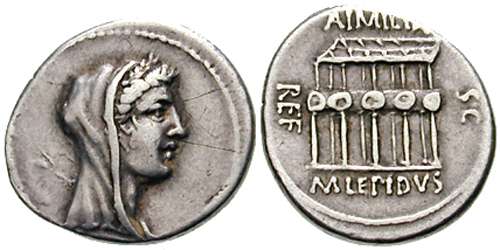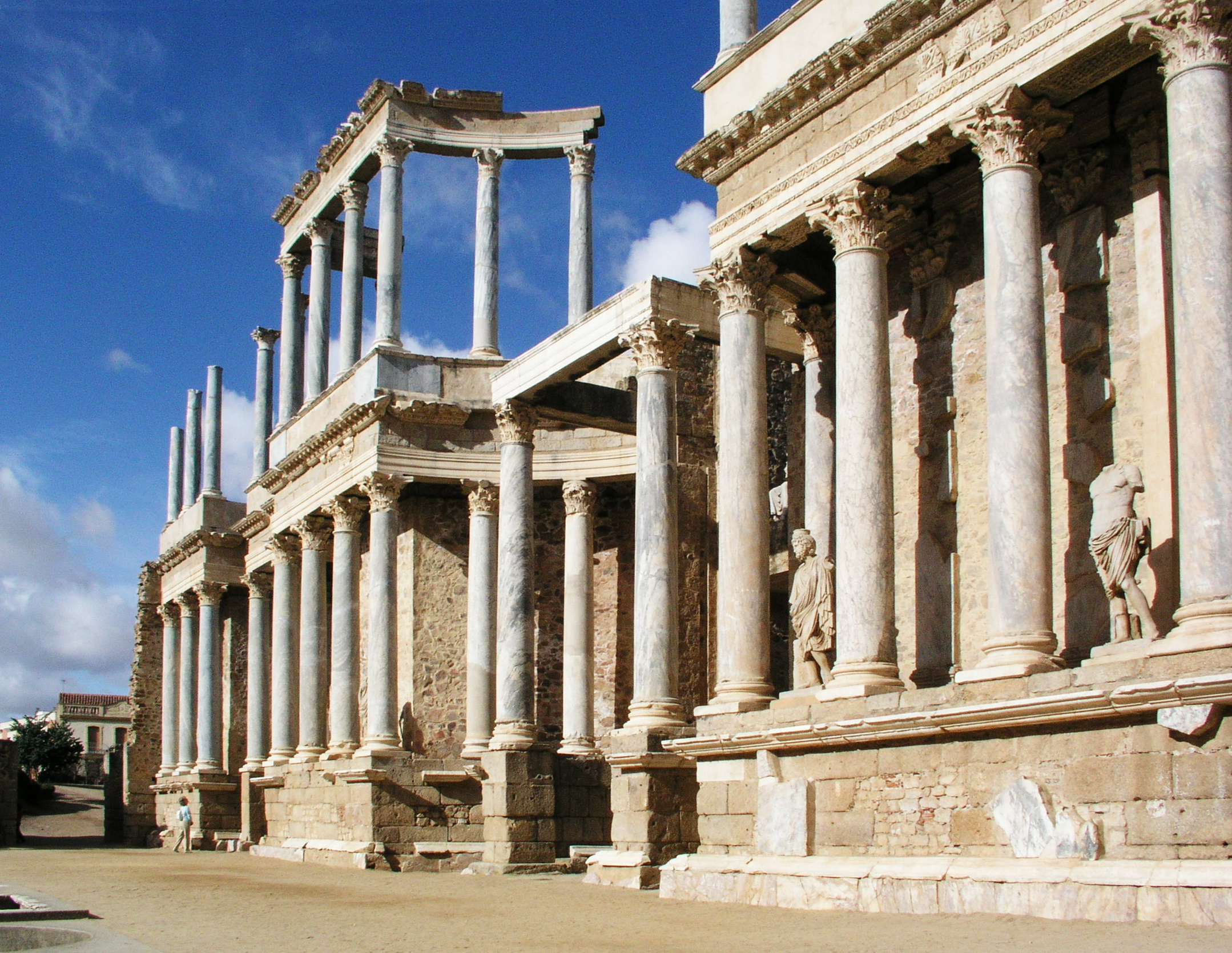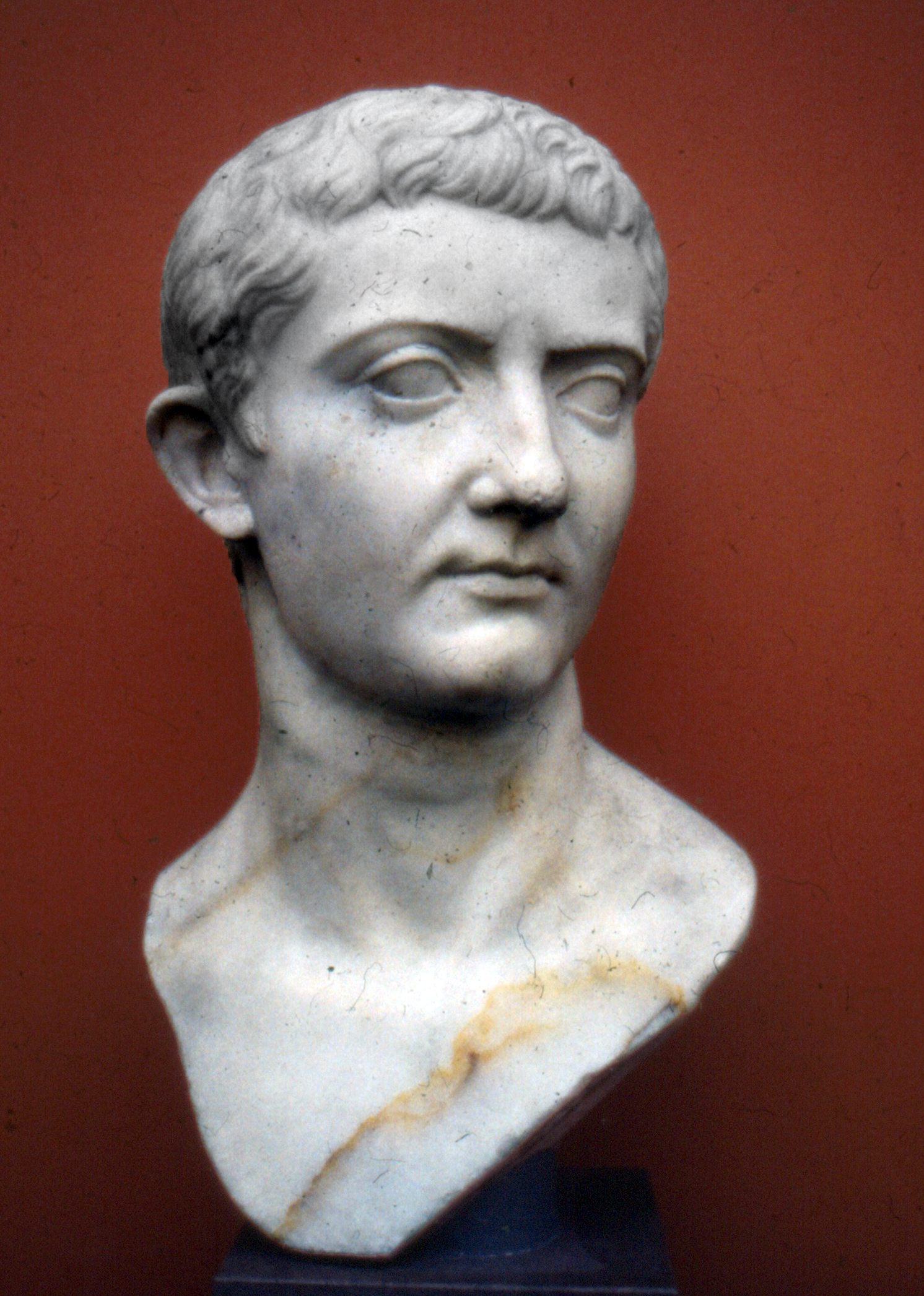|
Marcus Aemilius Lepidus (consul AD 6)
Marcus Aemilius Lepidus (c. 30 BC – 33 AD) was a patrician Roman senator, politician and general, praised by the historian Tacitus. Origin and early career Lepidus was the son of Cornelia and Paullus Aemilius Lepidus (who served as a censor) and brother-in-law to Augustus' granddaughter Julia the Younger, who was married to his brother Lucius Aemilius Paullus, consul in 1 AD. Thus, he was a member of one of the oldest patrician families, the Aemilii. He became consul in 6 AD. He then distinguished himself as legate in charge of an army during the Illyrian War (6 – 9 AD) under the command of Tiberius, the later emperor. After the end of the war he served as governor either of Dalmatia (modern day Croatia and Bosnia) or Pannonia (modern day Hungary). At the time of Augustus' death, in 14 AD, he was governor of Northern Spain in charge of an army of three legions. While there were serious riots in the armies in Germany and Pannonia after Augustus' death, Lepidus' ... [...More Info...] [...Related Items...] OR: [Wikipedia] [Google] [Baidu] |
Vipsania (wife Of Lepidus)
Vipsania (likely born between 27-21 BC and sometimes called Vipsania Marcella Minor or Vipsania Marcellina to differentiate her from her sisters) was an ancient Roman noblewoman of the first century BC. She was married to the politician Marcus Aemilius Lepidus and was likely the daughter of Roman general Marcus Vipsanius Agrippa and his second wife Claudia Marcella Major (the niece of emperor Caesar Augustus). History Early life Vipsania was likely born between 27 BC and 21 BC to Marcus Vipsanius Agrippa and his second wife Claudia Marcella Major, the eldest daughter of emperor Augustus sister Octavia Minor. From her father she likely had an older (assumed due to the age difference between their husbands) full sister and two older half sisters ( one who married Quintus Haterius and another named Vipsania Agrippina who married the future emperor Tiberius) as well as five younger half-siblings named Gaius Caesar, Lucius Caesar, Agrippina the Elder, Vipsania Julia and Agrippa ... [...More Info...] [...Related Items...] OR: [Wikipedia] [Google] [Baidu] |
Dalmatia (Roman Province)
Dalmatia was a Roman province. Its name is derived from the name of an Illyrian tribe called the Dalmatae, which lived in the central area of the eastern coast of the Adriatic Sea. It encompassed the northern part of present-day Albania, much of Croatia, Bosnia and Herzegovina, Montenegro, and Serbia, thus covering an area significantly larger than the current Croatian and Montenegrin region of Dalmatia. Originally this region was called Illyria (in Greek) or Illyricum (in Latin). The province of Illyricum was dissolved and replaced by two separate provinces: Dalmatia and Pannonia. Conquest The region which ran along the coast of the Adriatic Sea and extended inland on the Dinaric Alps was called Illyria by the Greeks. Originally, the Romans also called the area Illyria and later, Illyricum. The Romans fought three Illyrian Wars (229 BC, 219/8 BC and 168 BC) mainly against the kingdom of the Ardiaei to the south of the region. In 168 BC, they abolished this kingdom and di ... [...More Info...] [...Related Items...] OR: [Wikipedia] [Google] [Baidu] |
Drusus Caesar
Drusus Caesar ( AD 8 – 33) was the grandson by adoption and heir of the Roman emperor Tiberius, alongside his brother Nero. Born into the prominent Julio-Claudian dynasty, Drusus was the son of Tiberius' general and heir, Germanicus. Sejanus, the prefect of the Praetorian Guard, had become powerful in Rome and is believed by ancient writers such as Suetonius and Tacitus to have been responsible for the downfall of Drusus the Younger. As Sejanus' power grew, other members of the imperial family began to fall as well. In AD 29, Tiberius wrote a letter to the Senate attacking Nero and his mother, and the Senate had them both exiled. Two years later, Nero died in exile on the island of Ponza. Drusus was later imprisoned following similar charges as his brother, and remained in prison from AD 30 until his death three years later. Their deaths allowed for the ascension of their third brother, Gaius Caligula, following the death of Tiberius in AD 37. Background and family Drusus was ... [...More Info...] [...Related Items...] OR: [Wikipedia] [Google] [Baidu] |
Basilica Aemilia
The Basilica Aemilia (), or the Basilica Paulli, was a civil basilica in the Roman Forum. Lucius Aemilius Paullus initiated its construction, but the building was completed by his son, Paullus Aemilius Lepidus, in 34 BCE. Under Augustus, it was reconstructed in 22 CE and was described by Pliny as one of the most beautiful examples of Roman architecture. Today, only fragments of the floorplan and colonnade remain, but a continuous sculptural frieze from the lower entablature was partially reconstructed and is now preserved inside the neighboring Curia Julia. History Pre-existing structures According to Livy, a series of butcher shops ('' tabernae lanienae'') lined the central area of the Forum from the early Roman Republic era. Varro writes that by 310 BCE, the butchers had been relocated outside the Forum and their former storefronts were turned over to bankers ('' tabernae argentariae''). A fire in 210 BCE destroyed these '' tabernae'' and Livy refers to the newly built sho ... [...More Info...] [...Related Items...] OR: [Wikipedia] [Google] [Baidu] |
Claudia Marcella Major
Claudia Marcella Major ('' PIR2'' C 1102; born some time before 40 BC) was the senior niece of Roman emperor Augustus, being the eldest daughter of his sister Octavia the Younger and her first husband Gaius Claudius Marcellus. She became the second wife of Augustus' foremost general Marcus Vipsanius Agrippa and after that the wife of Iullus Antonius, the son of Mark Antony. Biography Early life Marcella belonged to the generation whose childhood was marred by the violence of the civil wars of the Roman Republic. She was likely the first child of her parents, being followed by her brother Marcus Claudius Marcellus and sister Claudia Marcella Minor. From her mother's second marriage to Mark Antony she would also gain two half sisters, Antonia the Elder and Antonia the Younger. Marriages Marcella's first known marriage was to Marcus Vipsanius Agrippa in 28 BC. She was his second wife. Augustus held Agrippa in the highest place of honor.Plutarch, ''Mark Antony'', 87 Agrippa was a m ... [...More Info...] [...Related Items...] OR: [Wikipedia] [Google] [Baidu] |
Marcus Vipsanius Agrippa
Marcus Vipsanius Agrippa (; BC – 12 BC) was a Roman general, statesman and architect who was a close friend, son-in-law and lieutenant to the Roman emperor Augustus. Agrippa is well known for his important military victories, notably the Battle of Actium in 31 BC against the forces of Mark Antony and Cleopatra. He was also responsible for the construction of some of the most notable buildings of his era, including the original Pantheon. Born to a plebeian family , in an uncertain location in Roman Italy, he met the future emperor Augustus, then known as Octavian, at Apollonia, in Illyria. Following the assassination of Octavian's great-uncle Julius Caesar in 44 BC, Octavian returned to Italy. Around this time, Agrippa was elected tribune of the plebs. He served as a military commander, fighting alongside Octavian and Caesar's former general and right-hand man Mark Antony in the Battle of Philippi. In 40 BC, he was ''praetor urbanus'' and played a major role in the Peru ... [...More Info...] [...Related Items...] OR: [Wikipedia] [Google] [Baidu] |
Marcus Aurelius Cotta Maximus Messalinus
Marcus Aurelius Cotta Maximus Messalinus (flourished second half of 1st century BC and first half of 1st century AD) was a Roman Senator who was a friend of the first two Roman emperors Augustus and Tiberius.Pettinger, ''The Republic in Danger: Drusus Libo and the Succession of Tiberius'', p. 39 Family background Maximus was born and raised in Rome. His birth date is unknown; however, it is not earlier than 24 BC, and possibly in 14 BC. His father was the literary patron Marcus Valerius Messalla Corvinus, suffect consul in 31 BC.Paterculus, ''The Roman History'', p. 127 Maximus was the son born to Corvinus’ second marriage to his unknown wife. The last poem of the poet Ovid (''Ex Ponto'' IV.16) reveals that his mother was a Roman noblewoman called Aurelia Cotta. Further evidence that Aurelia Cotta was his mother was that, although he was born into the gens Valeria, he was later adopted into the Aurelii Cottae.Skidmore, ''Practical Ethics for Roman Gentlemen: The Works of Valeriu ... [...More Info...] [...Related Items...] OR: [Wikipedia] [Google] [Baidu] |
Asia (Roman Province)
Asia () was a Roman province covering most of western Asia Minor (Anatolia), which was created following the Roman Republic's annexation of the Attalid Kingdom in 133 BC. After the establishment of the Roman Empire by Augustus, it was the most prestigious senatorial province and was governed by a proconsul. That arrangement endured until the province was subdivided in the fourth century AD. The province was one of the richest of the Empire and was at peace for most of the Imperial period. It contained hundreds of largely self-governing Greek city-states, who competed fiercely with one another for status, through appeals to the Imperial authorities and the cultivation of prestigious cultural institutions such as festival games, religious cults, and oratory. Geography The province of Asia originally consisted of the territories of Mysia, the Troad, Aeolis, Lydia, Ionia, Caria, and the land corridor through Pisidia to Pamphylia. The Aegean islands, with the exception of Crete, ... [...More Info...] [...Related Items...] OR: [Wikipedia] [Google] [Baidu] |
Roman Forum
A forum (Latin: ''forum'', "public place outdoors", : ''fora''; English : either ''fora'' or ''forums'') was a public square in a municipium, or any civitas, of Ancient Rome reserved primarily for the vending of goods; i.e., a marketplace, along with the buildings used for shops and the stoas used for open stalls. But such fora functioned secondarily for multiple purposes, including as social meeting places for discussion. Many fora were constructed at remote locations along a road by the magistrate responsible for the road, in which case the forum was the only settlement at the site and had its own name, such as Forum Popili or Forum Livi. Functions In addition to its standard function as a marketplace, a forum was a gathering place of great social significance, and often the scene of diverse activities, including political discussions and debates, rendezvous, meetings, et cetera. In that case, it supplemented the function of a '' conciliabulum''. Every municipality () ha ... [...More Info...] [...Related Items...] OR: [Wikipedia] [Google] [Baidu] |
Sejanus
Lucius Aelius Sejanus ( – 18 October AD 31), commonly known as Sejanus (), was a Roman soldier and confidant of the Roman Emperor Tiberius. Of the Equites class by birth, Sejanus rose to power as prefect of the Praetorian Guard, the imperial bodyguard, of which he was commander from AD 14 until his execution for treason in AD 31. While the Praetorian Guard was formally established under Emperor Augustus, Sejanus introduced a number of reforms which saw the unit evolve beyond a mere bodyguard into a powerful and influential branch of the government involved in public security, civil administration and ultimately political intercession; these changes had a lasting impact on the course of the Principate. During the 20s, Sejanus gradually accumulated power by consolidating his influence over Tiberius and eliminating potential political opponents, including the emperor's son Drusus Julius Caesar. When Tiberius withdrew to Capri in AD 26, Sejanus was left in control of the admin ... [...More Info...] [...Related Items...] OR: [Wikipedia] [Google] [Baidu] |
Quintus Junius Blaesus
Quintus Junius Blaesus (died AD 31) was a Roman politician who lived during the reigns of Augustus and Tiberius. He was the maternal uncle of Lucius Aelius Sejanus, the Praetorian Prefect of Emperor Tiberius. Career Almost nothing is known of the career of Quintus Junius Blaesus prior to AD 10, when he served as suffect consul with Servius Cornelius Lentulus Maluginensis. The exception is a lead ingot attesting he was proconsul of Sicily; the date of his office can be dated no closer than the long reign of Augustus. Blaesus subsequently appears as commander of the armies stationed in Pannonia when a mutiny broke out after the death of Augustus in the year 14. According to Tacitus, after military service in the Great Illyrian Revolt, soldiers were unhappy with their payment of swampy and mountainous Pannonian lands and demanded restitution. To ease tensions, Blaesus offered to commit suicide, but his request was ignored. According to the Roman historian Cassius Dio, the soldiers ... [...More Info...] [...Related Items...] OR: [Wikipedia] [Google] [Baidu] |
Africa Province
Africa was a Roman province on the northern coast of the continent of Africa. It was established in 146 BC, following the Roman Republic's conquest of Carthage in the Third Punic War. It roughly comprised the territory of present-day Tunisia, the northeast of Algeria, and the coast of western Libya along the Gulf of Sidra. The territory was originally and still is inhabited by Berbers, known in Latin as the Numidae and Maurii'','' indigenous to all of North Africa west of Egypt. In the 9th century BC, Semitic-speaking Phoenicians from the Levant built coastal settlements across the Mediterranean to support and expand their shipping networks. In the 8th century BC, the settlement of Carthage became the predominant Phoenician colony. Rome began expanding into the Province of Africa after annexing Carthage in 146 BC at the end of the Punic Wars, and later into Numidia in 25 BC, establishing Roman colonies in the region. Africa was one of the wealthiest provinces i ... [...More Info...] [...Related Items...] OR: [Wikipedia] [Google] [Baidu] |






